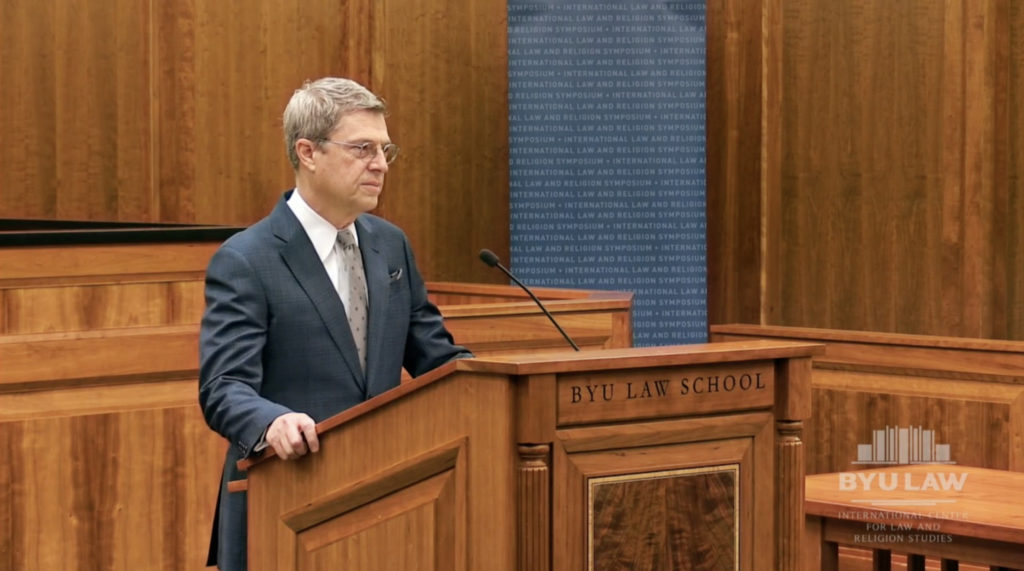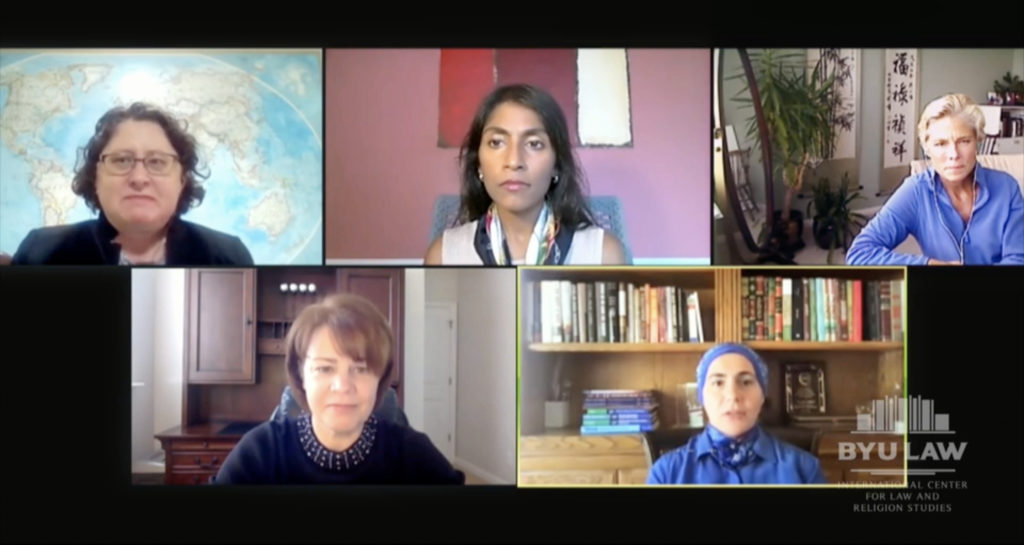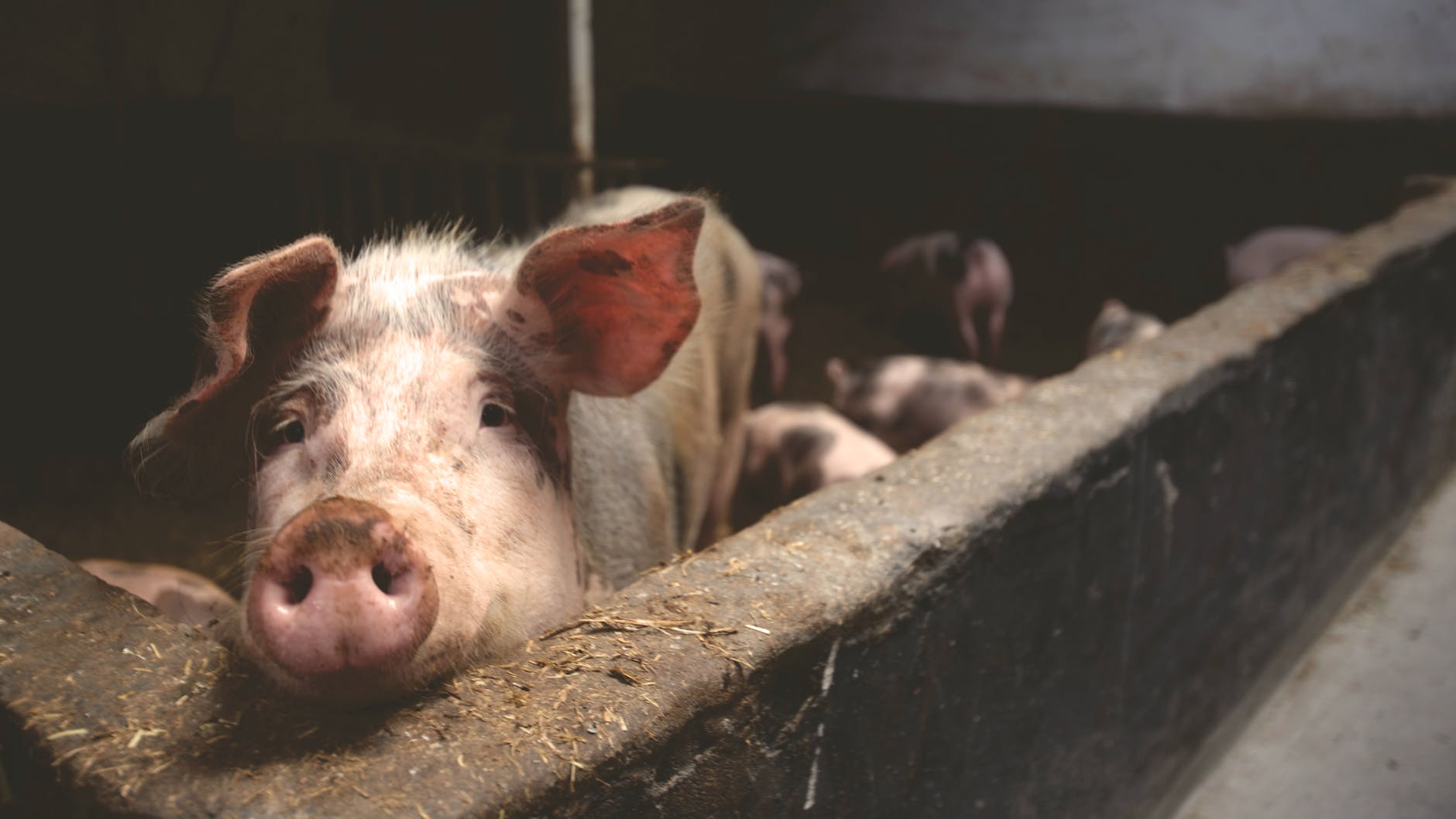
The BYU International Center for Law and Religion Studies broadcasted the 27th Annual International Law and Religion Symposium from Oct. 4-6.
The theme of the symposium was Religious Freedom: Rights and Responsibilities. Sessions of the symposium were broadcast online, unlike previous years when speakers and students gathered on campus. Translation of the symposium was provided in five languages.
Center director Brett G. Scharffs started the event with an online presentation. He noted that the center celebrates 20 years since its founding this year.
“The crown jewel of everything we do is our students,” Scharffs said. “Perhaps our greatest regret in not being able to gather in person this year is that you who are participating with us online will not have an opportunity to meet these students.”
President Henry B. Eyring, the second counselor in the First Presidency of the Church of Jesus Christ of Latter-day Saints, spoke in the Sunday afternoon plenary session. He introduced the topic of religious freedom.
“We have a deep commitment to the brotherhood and sisterhood of all and feel an obligation as followers of Jesus Christ to serve and bless those in all countries, regardless of their religious affiliation or lack thereof. In the spirit of our Master, who went about doing good, we seek to help lift the burdens of those in need, in any faith, throughout the world,” President Eyring said.
In the beginning session, Secretary General of Religions for Peace International Azza Karam spoke on the responsibility to speak in behalf of those who have lost their freedom of religion.
“Religious communities are persecuted today more than ever before. This is the time to be able to speak for your brother and your sister in the other part of the world whose right to thought, whose right to conscience, whose right to belief is being actively taken away. This is the time to speak out,” Karam said.

Addressing the audience from Nigeria, Ayodele Atsenuwa was part of the Monday breakout session panel. Atsenuwa is a professor of public law and dean of the faculty of law at the University of Lagos, and the director of the West African Regional Centre for Law and Religion Studies. Some of her insights dealt with the effect COVID-19 has had on religion, as many religious groups have been restricted from their places of worship.
“What people initially thought were limitations of fundamental freedoms, over time they came to accept that it wasn’t a government clamp down on religious freedom, but it was just an exigency,” Atsenuwa said.
Sharon Eubank, president of Latter-day Saint Charities and first counselor in the Relief Society presidency of The Church of Jesus Christ of Latter-day Saints, shared stories on her involvement providing humanitarian relief after natural disasters. Religious groups worldwide have joined together to serve affected communities. Their tolerance of other beliefs have allowed for occasions to worship together.
“Our principle of, ‘People deserve to express their faith safely and securely, whatever it is,’ allows for those kinds of opportunities,” Sister Eubank said.
Among other speakers during the three day event were Krish O’Mara Vignarajah, president and CEO of Lutheran Immigration and Refugee Service; and Suzanne Akhras Sahloul, founder and executive director of the Syrian Community Network.
In regard to minority and majority religions, speakers shared thoughts on how to help all religions feel welcome to worship wherever they are located.
Faizan Mustafa, vice chancellor of NALSAR University of Law in India shared his experiences. He said there is no harm in giving religious freedom to all groups because it will benefit everyone.
“If we do not give this freedom to them, people will feel suffocated and they will not have harmony and peace in the society,” Mustafa said. He went on to discuss that if India, being a multi-religious society is to survive, “we must celebrate our diversity.”














